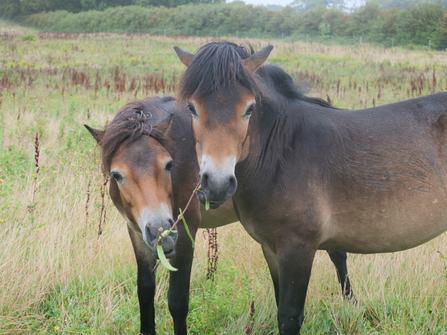Their task is simple – nibble, browse and graze the land to encourage habitat restoration and help nature’s recovery.
It’s the first time that the Trust has used ponies to help with rewilding and they join the existing cohort of conservation grazing livestock, including native breeds of cattle and sheep.

